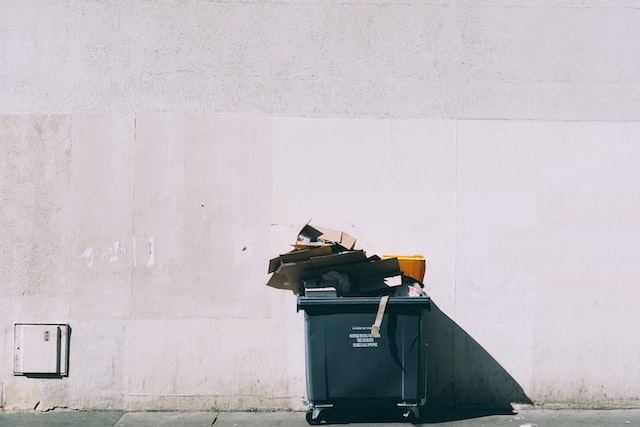
According to Statista, global waste has increased in the past years, and the trend seems to continue in this direction. Some of the contributing factors include population growth, urbanization, and consumer shopping habits. These elements lead to millions of tons of waste produced yearly, of which only about 20% is recycled.
The insignificant percentage regarding recycling usually happens due to a lack of knowledge and proper advocating processes, which adds to the biggest challenge faced by effective waste management, which is safety-related. Employees might be exposed to chemicals, combustible dust, machine guarding hazards, and much more.
Businesses can contribute to better waste management by introducing practices and guidelines within the company and also taking the right steps towards actual recycling programs. Here’s how.
Measure your business waste
Before taking any recycling action, it’s best to measure how much your business wastes and plan how to tackle it. Of course, this has to be done by analyzing the type of waste you’re producing and recording it in a document so you can adequately measure all the waste. This report will help you understand how much rubbish you should expect to form in the future, but it will also give you an insight into what you can minimize being thrown away.
There are also other methods of measurement. For example, you could analyze the percentage of material purchased, which will be related to the quantity of material wasted. This requires more calculations and approximations, but this is the best approach if you want to rely on numbers.
Train your staff
All the waste is produced by the processes that your company requires, but employees can also contribute to it. That’s because poor training or inadequate management plan can lead to confusion or simply disinterest when it comes to recycling correctly. It all starts with communicating the company’s need to reduce waste and why your employees would contribute to this movement. Besides training, it’s also best to add recycling into your company’s culture base so that when someone new comes in, they’ll know recycling is a fundamental task they should try doing more often.
You should communicate the need for recycling to all departments, regardless of the type of business you have. Another thing you can do is display clear signs and strong messaging around the office, but without being too authoritative. It should sound like a suggestion or some sort of guidance.
Install proper waste containers
It’s not enough to change your company’s culture or train your staff if you don’t provide proper measures and technologies. So, regular bins won’t do in this case, and you need to get sustainable waste containers that allow all the people in the building to recycle separately properly. It would be best to have a bin for every type of waste, such as:
- A container for plastics, cans, and cartons;
- A container for paper and cardboard;
- A container for glass;
- A container for organic waste;
Depending on the type of business you run, you might want to add another one for utensils or medicines, or batteries. If you have other recycling needs for your company, you could check out Mil-tek to find the best solution for minimizing waste of all shapes and sizes.
Having proper waste containers will help you throw out less waste and recycle more, which will contribute to your company. You might even save costs when ordering certain products because you know how much will be thrown away and want to minimize that amount. Plus, as your employees get used to recycling, it’ll be easier to notice how much you’ve wasted until now regarding financial resources and materials.
Provide safety data sheets
Statistically speaking, more than 18 million tons of hazardous waste have been proceeding and thrown away only this year, and the number is constantly increasing. Generally, these are the industries that generate the most toxic waste:
- Chemical manufacturing;
- Manufacturing of petroleum products;
- Waste treatments;
- Manufacturing of pesticides or fertilizers;
- Manufacturing of iron and steel;
All these aspects only show how damaged and polluted the environment is, so if you want to make a change, it’s necessary to put safety first. When dealing with hazardous waste, you must provide everyone with information regarding handling, storing, and disposing of such materials. All employees must know the proper practices so that there’s no risk of them getting injured or ill from chemicals and other toxic products around the company.
Besides making sure everyone is safe, you also need to ensure that these chemicals don’t end up on land or sea because they will contaminate the lives of animals and people around. Most of the time, there are four methods of disposing of hazardous materials:
- Chemical treatment (oxidation);
- Thermal treatment (incineration);
- Biological treatment (landfarming);
- Physical treatment (solidification);
Perform regular audits
Besides taking action once, performing regular audits on waste management and disposal is essential to make progress. At the same time, this task can help you cut costs and save precious time on daily work processes, so you should include it in your yearly goal. Keeping a record where you note every penny spent on the materials, all the waste generated per month or week, and the measure you took to dispose of those products correctly will help your business become more sustainable.
You can choose to perform either internal or internal audits, depending on the size of your company. For example, the benefits of an internal audit include the following:
- Determining whether the waste management practices are up-to-date with the company’s needs;
- Identifying inefficiencies that come along with the recycling process;
- Providing objective insight into the problem;
- Assessing efficient and responsible use of resources;
Final thoughts
Improving your company’s waste management might be a small step toward sustainability, but it’s an important one. Besides contributing to a less polluted planet, recycling and managing your waste properly can minimize the effects on people’s health due to land or water pollution. It can even help your company cut certain costs.













